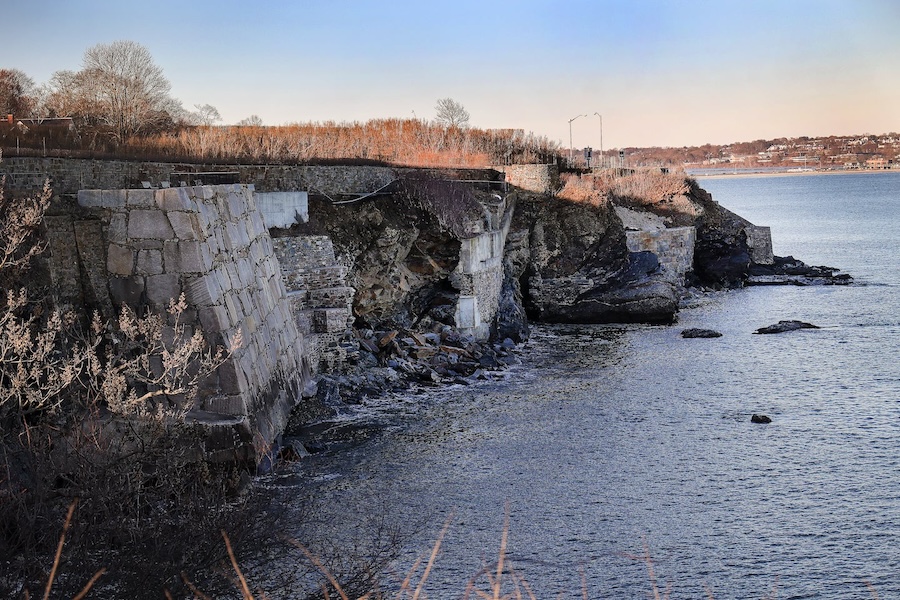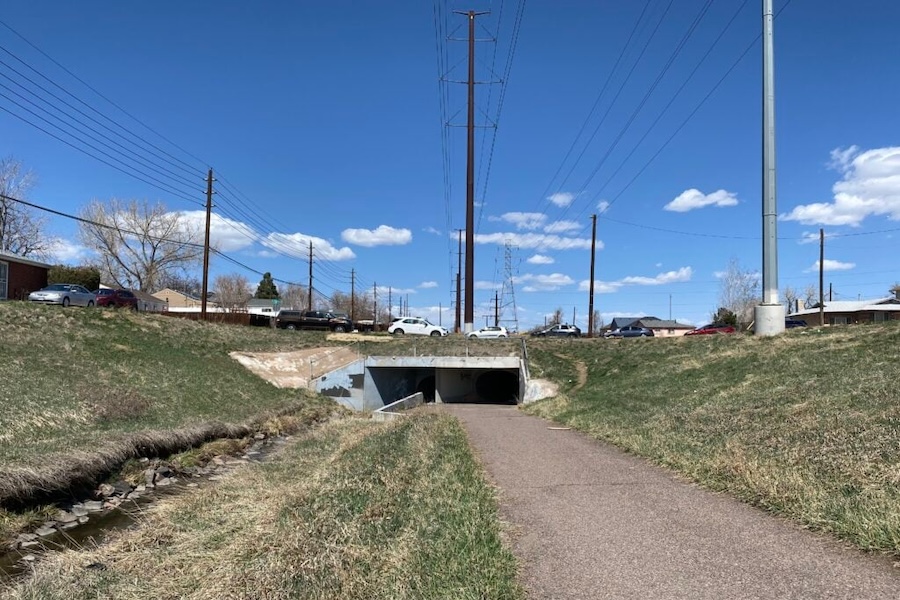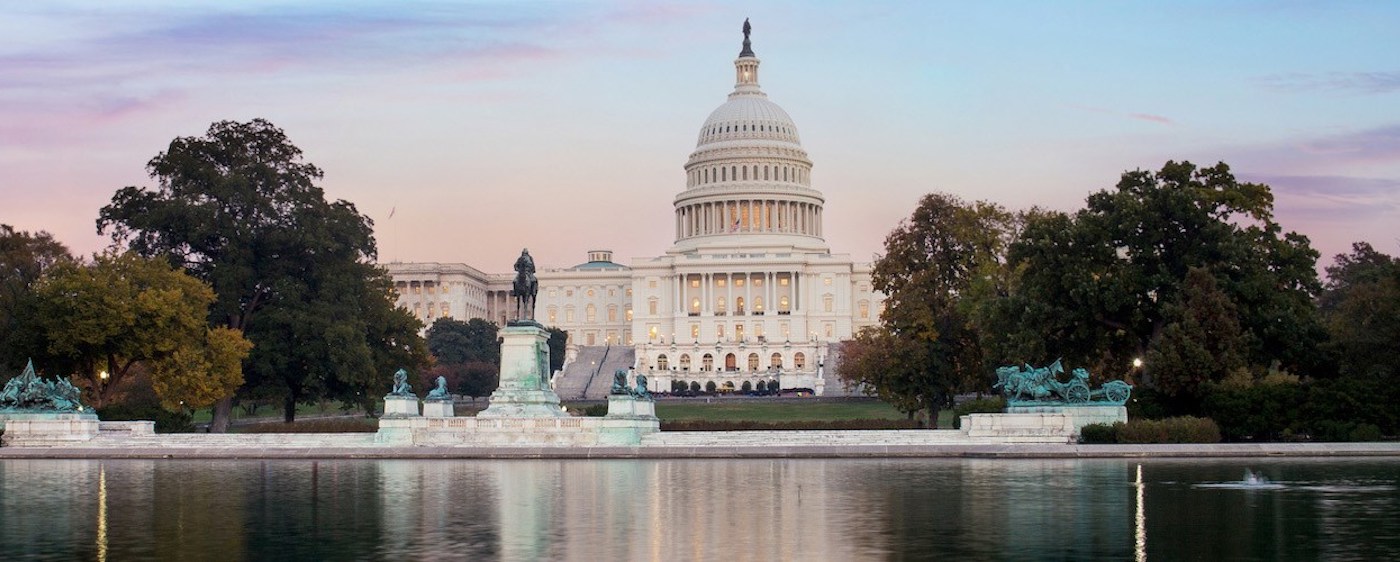Promoting Resilient Operations for Transformative, Efficient and Cost-saving Transportation
Photo courtesy Getty Images
We have received notice that the PROTECT grant is currently under review from FHWA and has been removed from Grants.gov. We will continue to update this site with new information and and recommend you review grants.gov for more. Please see Grants.gov for the official message.
The Bipartisan Infrastructure Law, signed into law by President Biden, established the Promoting Resilient Operations for Transformative, Efficient and Cost-saving Transportation (PROTECT) discretionary grant program. This new competitive grant program, which provides $1.4 billion in funding over four years, is designed to make transportation more resilient to rising sea levels, increased flooding, natural disasters and climate change. The Federal Highway Administration (FHWA) will administer the program; trails and other pedestrian and bicycle infrastructure are eligible for funding as solutions to climate impacts. This grant cycle is open through August 18, 2023.
The PROTECT program offers both planning and construction grants, though only 40% of award funds can be used for new construction. The federal share is 80% but there is the possibility for a higher federal share and lower local match if your state or metropolitan planning organization (MPO) develops a Resilience Improvement Plan. Projects selected under the PROTECT grant should be rooted in the latest scientific information around climate resiliency, risks, impacts and vulnerabilities.
One interesting eligibility for the PROTECT grants is natural infrastructure or nature-based solutions, which include conservation, construction or restoration of marshes, wetlands, native vegetation, reefs, shade trees and more. These solutions should focus on reducing flood risks, wave damage, heat effects or erosion, while also providing recreational benefits. PROTECT grants should also demonstrate innovative best practices that can be replicated.
Eligible applicants for PROTECT grants include:
- State and local governments
- Federally recognized tribes and affiliated groups
- Planning and project organizations
Eligible activities for PROTECT grants include planning, construction, operations, maintenance, technology demonstrations, deployment, climate and sustainability, accessibility and security. As referenced above, trails and other bicycle and pedestrian infrastructure are eligible for PROTECT grants.
Quick Facts:
- Type: Discretionary grant program
- Administered By: The U.S. Department of Transportation (USDOT)’s Federal Highway Administration (FHWA)
- Year Created: Established by the signing of the Bipartisan Infrastructure Law
- Purpose: To make transportation more resilient to the effects of climate change
- Federal Share: For most active transportation projects, the federal share is 80% but with this program there is the possibility for a higher federal share if the state or MPO develops a Resilience Improvement Plan.
- Also Known As: PROTECT
Successful PROTECT Active Transportation Projects
In Spring 2024, $830 million dollars in grants were awarded to 80 communities nationwide as part of the FY22 and FY23 cycles of the Promoting Resilient Operations for Transformative, Efficient, and Cost-saving Transportation (PROTECT) Discretionary Grant Program. The PROTECT Program includes active transportation and trail eligibility, with a focus on resiliency. Out of the 80 projects funded, 11 include elements of walking and biking infrastructure, meaning around 25% of funding from FY22 and FY23 was awarded to projects that address biking, walking, and/or trail infrastructure.
While resiliency projects in this award cycle ranged from constructing and improving evacuation routes to upgrading drainage systems, the two projects highlighted below emphasize the importance of fortifying walking and biking infrastructure to promote resilience and protect against future weather events. These projects serve as important reminders that trail and bike networks affected by climate resiliency issues and other weather events deserve sufficient investment to support nonmotorized modes of transportation as part of resiliency efforts.
Newport Cliff Walk Restoration
Project At A Glance:
Submitted by: City of Newport – Public Services Department
Location: Newport, Rhode Island
Project Type: At-Risk Coastal Infrastructure/ Construction
Urban/Rural: Urban
Amount Awarded: $11,000,800

The Newport Cliff Walk, which was designated as a National Recreation Trail in 1975, will receive much needed repairs after facing wear and tear from years of coastal storms. $11 million in PROTECT grant dollars will go towards stabilizing two sections of the walk that collapsed in 2022 and have since remained in disrepair, disrupting the connection along the coast. The Cliff Walk is the most popular tourist attraction in Rhode Island, bringing in $1.3 million visitors and increasing the state’s economic impact by $200 million yearly1. Senator Whitehouse, who helped create the PROTECT program, refers to the Cliff Walk as a “unique landmark that draws people from across the state and the country to Aquidneck Island.” Similarly, Senator Reed, a senior member of the Appropriations Committee, describes the path as a “national treasure and an environmental and economic asset for the city of Newport and the entire state.”
The importance of this route to the community and the state was reinforced in June 2023 when Rhode Island Governor Dan McKee issued an emergency disaster declaration for the Cliff Walk. Following this declaration, McKee set aside $8 million of a $50 million green bond for repairs. Not long after this, Senators Reed and Whitehouse and Congressman Amo showed their support by securing an additional $5 million earmark for repairs in the FY2024 government funding measure that was signed into law in March 2024. “This federal funding will help make the walking trail safer and preserve its natural and historic significance for future generations,” said Senator Reed.
1 A 2018 study by students at Salve Regina University, whose campus is located along a stretch of the Cliff Walk, estimated that the Cliff Walk attracts 1.3 million visitors per year and adds $200 million in economic impact for Rhode Island. https://www.reed.senate.gov/news/releases/reed-whitehouse-and-amo-deliver-over-16m-to-strengthen_repair-newports-iconic-cliff-walk
Sanderson Gulch Resiliency Project
Project At A Glance:
Submitted by: City and County of Denver
Location: Denver, Colorado
Project Type: Resilience Improvement/Construction
Urban/Rural: Urban
Amount Awarded: $4,000,000

PROTECT funding for the Sanderson Gulch Resiliency Project will allow the City and County of Denver to improve the resiliency and safety of an important roadway and trail. Additionally, the $4 million dollar grant will be used to expand active transportation opportunities and improve connectivity between disadvantaged neighborhoods. The resiliency improvements implemented with this funding will directly translate to safety, equity, and connectivity benefits for communities in Denver. Specifically, the replacement of a crucial bridge in southwest Denver will safely connect low income and Latino communities with regional active transportation infrastructure and to a nearby elementary school.
Adam Lind, Trails Program Manager for the City of Denver, outlined the following project elements as crucial resiliency improvements: upgrade the trail along the Sanderson Gulch corridor from asphalt to concrete and widen the trail to 10’ of concrete and 3’ of crusher fines, elevate the trail corridor to be above 5 & 10 year storm elevations to keep the trail usable during flood events, and include an additional trail underpass to greatly enhance bicycle and pedestrian safety. Lind says the City of Denver is “excited about this grant and the opportunity it is providing to leverage local funds to make this project a reality.”
These two projects highlight the need for trails, walking and biking to be part of any comprehensive climate resiliency effort. PROTECT grant funds provide an important source of funding to ensure that our nation’s trails and active transportation infrastructure remain safe and accessible amid challenging weather and climate events.
Resources
Promoting Resilient Operations for Transformative, Efficient, and Cost-Saving Transportation (PROTECT) Formula Program: https://www.fhwa.dot.gov/bipartisan-infrastructure-law/protect_fact_sheet.cfm
PROTECT General Grant Program Information: https://www.transportation.gov/rural/grant-toolkit/promoting-resilient-operations-transformative-efficient-and-cost-saving
PROTECT FHWA Discretionary Grant Program: https://www.fhwa.dot.gov/environment/protect/discretionary/

